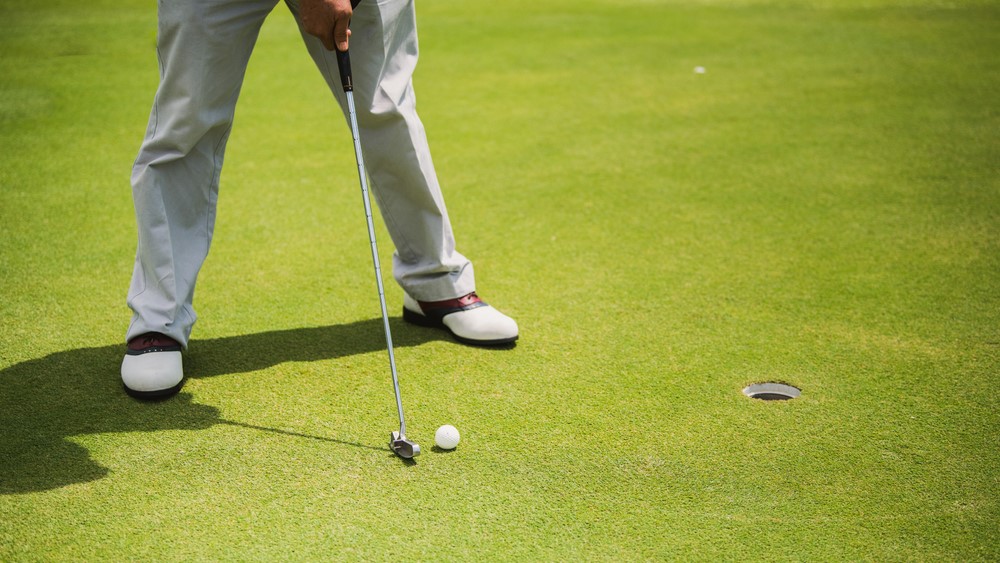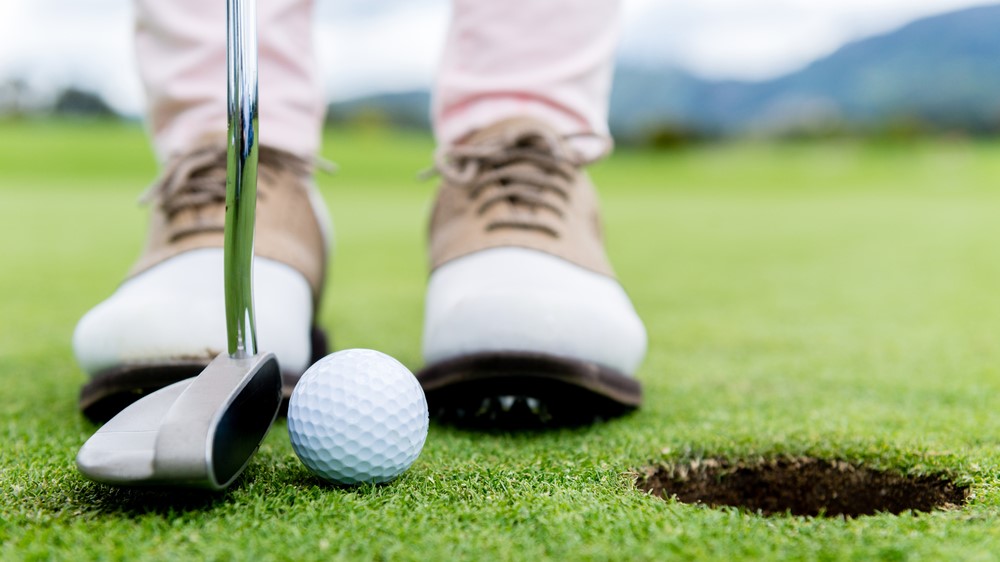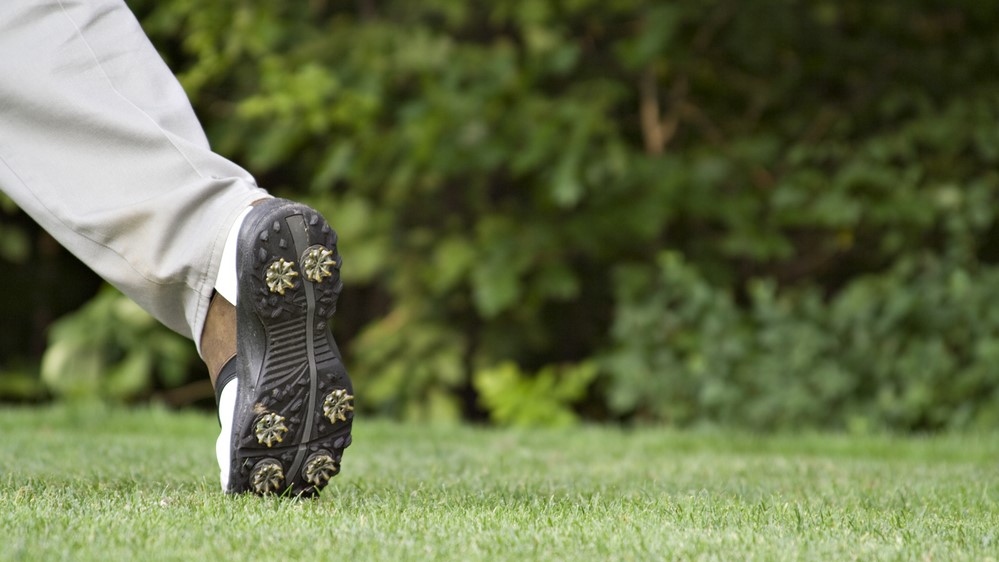Do golf shoes matter? We ask an expert
Do golf shoes actually make a difference to your game?

If you’re just starting to play golf, you might be asking yourself: "Do I have to buy golf shoes?"
The short answer to that is no, of course not. But you can't play in your street shoes at most courses, either. Most require some sort of flat-bottomed athletic shoe at the very least, but those will probably not help you to play better. You might be comfortable walking the course in some cross-trainers, but there are drawbacks to going down that route. The best golf shoes really do make a difference.
"Professional golfers refer to their shoes as 'equipment’,'" says Patrick Trubiano, Senior Product Line Manager for FootJoy Footwear, which has owned the lion's share of the golf shoe market for the past half-century. "Golf is no different from any other sport. There are features of the golf shoe that work with the game of the golfer, their swings, and their foot movement."
These days, most golf shoes are pretty comfortable, too, even the inexpensive ones. But there is no one golf shoe that's right for everyone. Here, we explore the different types of shoes and some of the technology that's built into them.
The benefits of golf shoes
While you won't find golf shoes with metal spikes sold in stores anymore (most courses forbid them because they tear up the greens), modern golf shoes still provide plenty of traction, with or without plastic spikes. Luckily, the traction in these shoes is every bit as good (or better) as those metal-spiked shoes of yesteryear.
Most golf shoes are waterproof, while most sneakers are not. So that right there is a good reason to wear golf shoes — there's nothing like getting your feet wet on the first hole and playing the next four hours with waterlogged feet.
Golf shoes are also designed to help walkers make it through 18 holes. Some companies even design energy return in their in-sole foam technology. Plus, even if you don't walk, golf shoes provide the necessary stability to make swings. In fact SQAIRZ, a newer shoe manufacturer that six-time major champion Nick Faldo has invested in, claims that its shoes will result in increased distance because of its incredible stability and "ground connection." According to Faldo, when he tested a pair of SQAIRZ on a range, he hit drives "an average of seven yards farther" than another brand he tested. While we don't cast doubt on Faldo's claim, the point is that golf shoes can certainly make a difference.
Get instant access to breaking news, the hottest reviews, great deals and helpful tips.

Do beginners need golf shoes?
Some instructors actually like the idea of players practicing in sneakers so they don't try to swing too hard. Without much traction — which is the case when a golfer plays in sneakers — good tempo, balance and swinging within one's self are all required to hit a decent shot. But overall all golfers, including beginners, should invest in a pair of specialist shoes.
Indeed, even beginners are handicapping themselves by not playing in golf shoes. (Here's how to calculate your golf handicap). Granted, if you only play once a year you probably don't want to invest in a pair, but if you're taking up the game it's necessary equipment. Plus, the technology in modern golf shoes has come a long way. You can now find mesh uppers and outsoles that move with your foot, soft leathers, and incredible styling that's sure to please every golfer.

What are the differences between spikes and spikeless shoes?
If you're thinking you absolutely have to have shoes with seven or more sets of spikes in each sole to have traction, you're mistaken. Thanks to today’s technology and modern TPU (thermoplastic urethane) materials, it’s possible to choose spikeless outsoles with designs that nevertheless still very much grab the ground.
One of the advantages of playing in spikeless shoes is that they are easy to wear both on and off the course. A golfer can play 18 holes, then just make sure the shoes are clean and wear them into the clubhouse for dinner at many clubs.
Most serious golfers, however, have more than one pair of shoes, and may have both spikeless and spiked golf shoes depending on conditions. Spiked shoes may be a better choice for a hilly or wet course, while spikeless might be more comfortable if you're walking in dry conditions.
Because the technology is so good, spikeless shoe sales have soared in the last few years. While less than a quarter of tour players wear spikeless shoes, consumers are split down the middle according to Trubiano. Interestingly, for women golfers, the market is nearly 80 percent spikeless. A bestseller over the past few years has been FootJoy's Pro SL models, a range of spikeless shoes worn by avid golfers and tour players alike that performs as well as just about anything on the market.
How often do you need to buy golf shoes?
Golf shoes today are so well built that they last remarkably long. If you play once a week you can probably get through a couple of seasons or more with one pair of golf shoes. But if you have more than one pair, it's a good idea to rotate them to get more life out of them. Cleaning your golf shoes can also help them last longer.
In general, though, it depends on how serious a player you are. Many golfers get a new pair every year, not only for performance, but for fashion as well. That's right, let's not forget that in addition to golf shoes being equipment, they are also apparel, an important part of your overall look. So even if you're not a great player, golf shoes will help you look the part! In fact, some golfers like to have a lot of different colors to go with different outfits, and there's nothing wrong with that.
Check out the best golf shoes worth investing in here. We've also found the best golf gloves to help improve your game.
Mike Bailey has been writing about golf tournaments, instruction, agronomy, architecture, travel and equipment for more than 30 years. He's been a staff member for several national golf publications, including PGA Magazine, the Golfweek Group and the Golf Channel's GolfAdvisor.com. Mike, whose handicap is single digit (barely), lives in Houston, Texas. An award-winning writer and past president of the Texas Golf Writers Association, Mike plays out of Memorial Park Golf Course, home of the PGA Tour's Houston Open.

